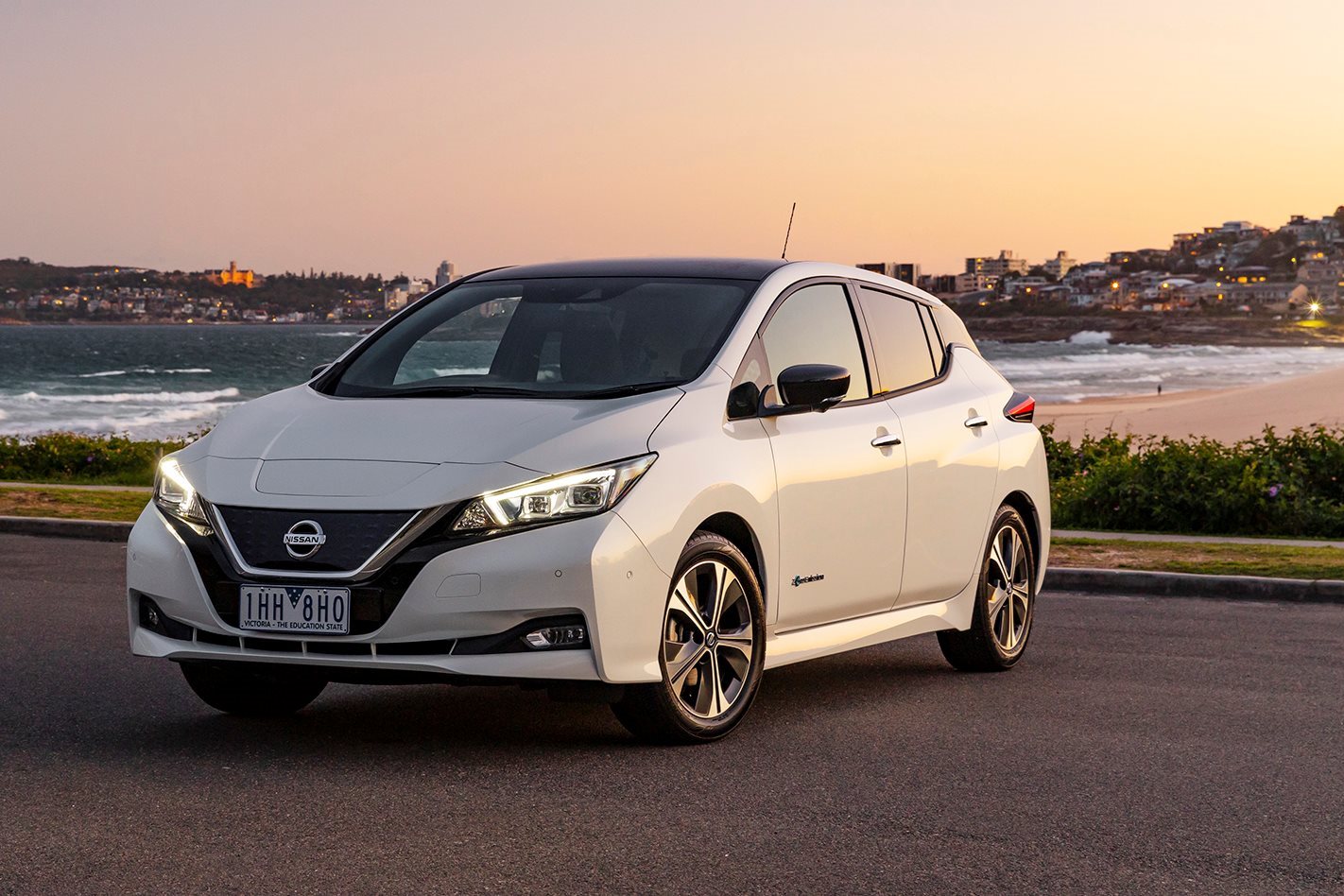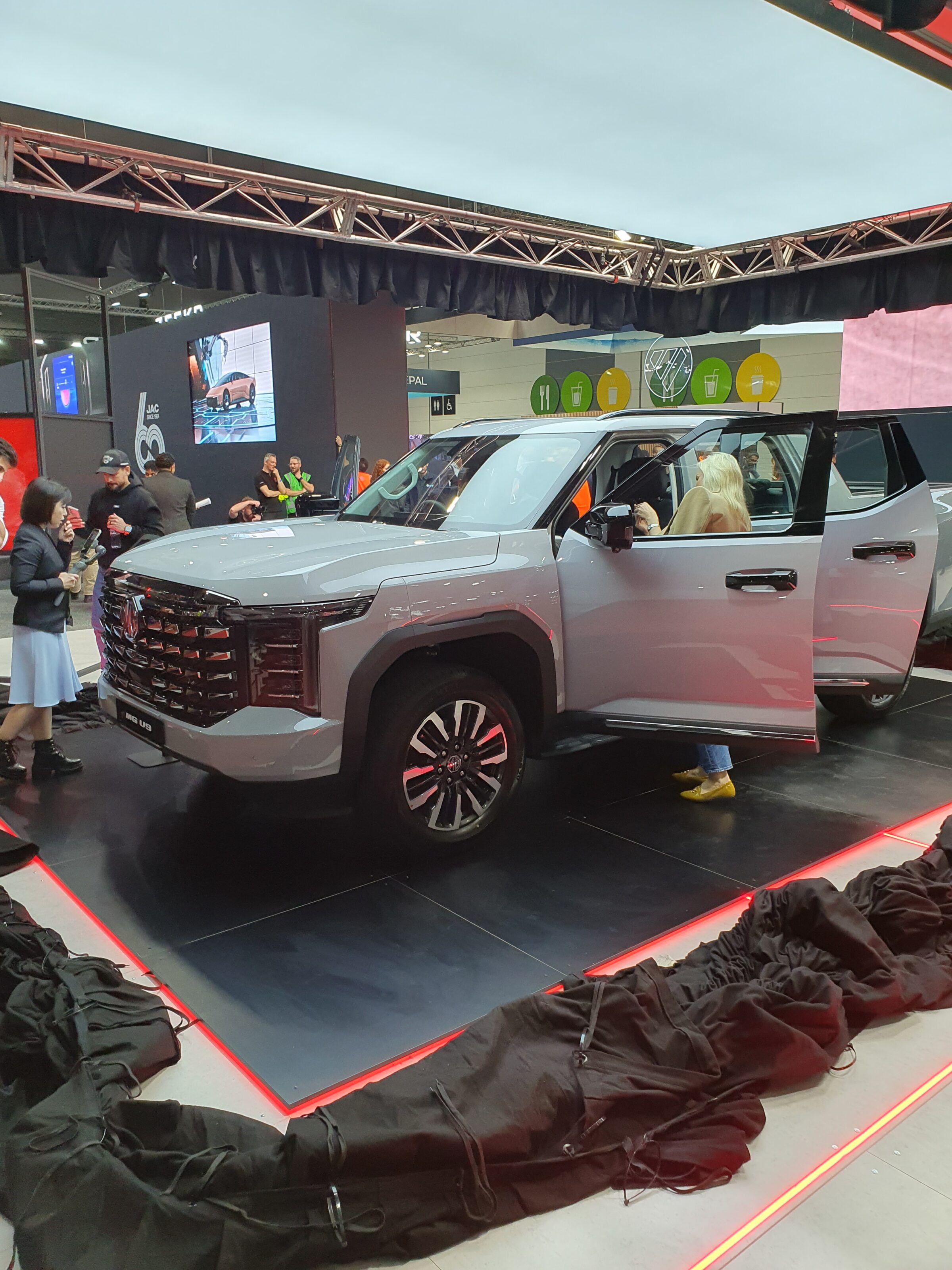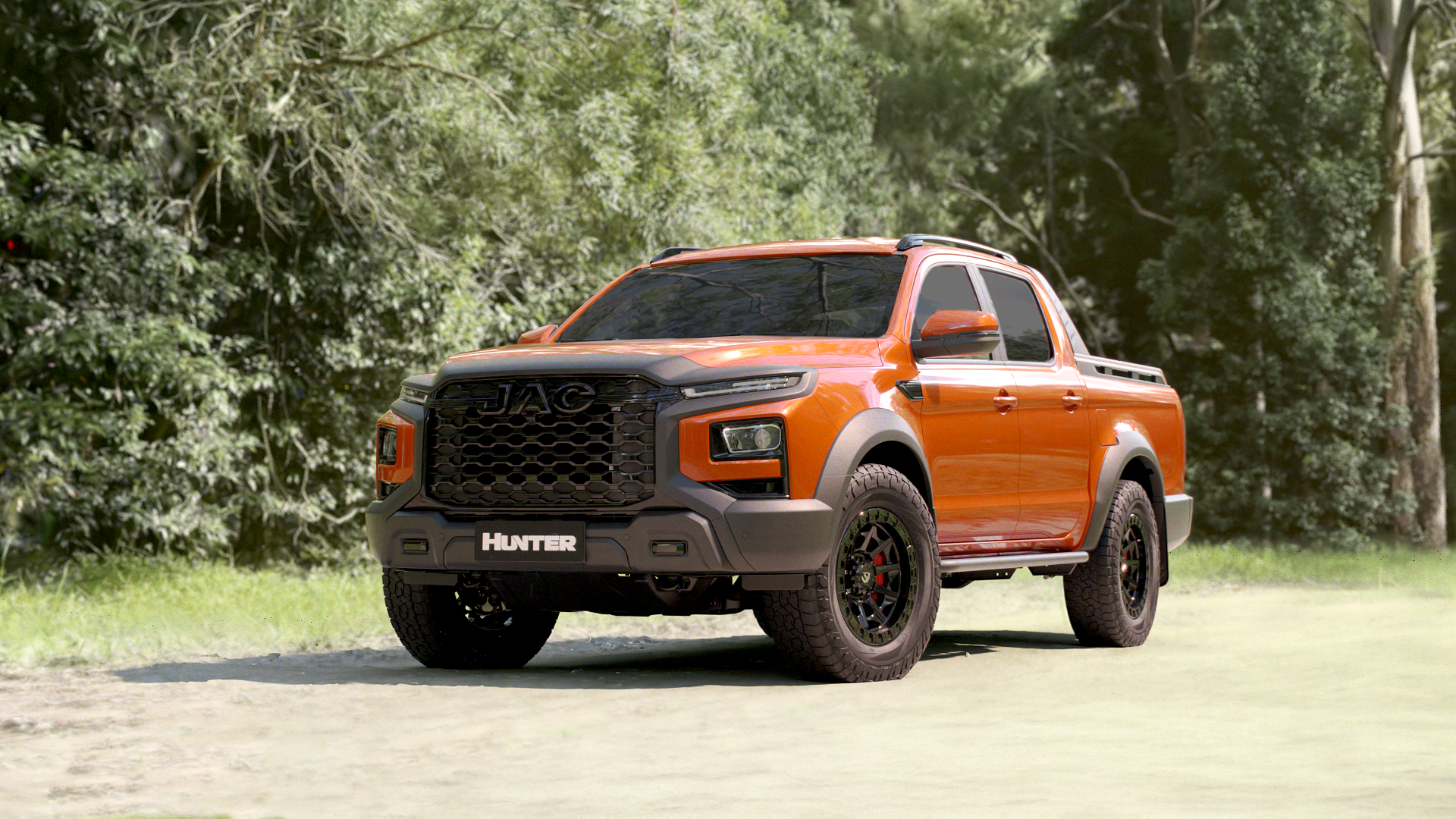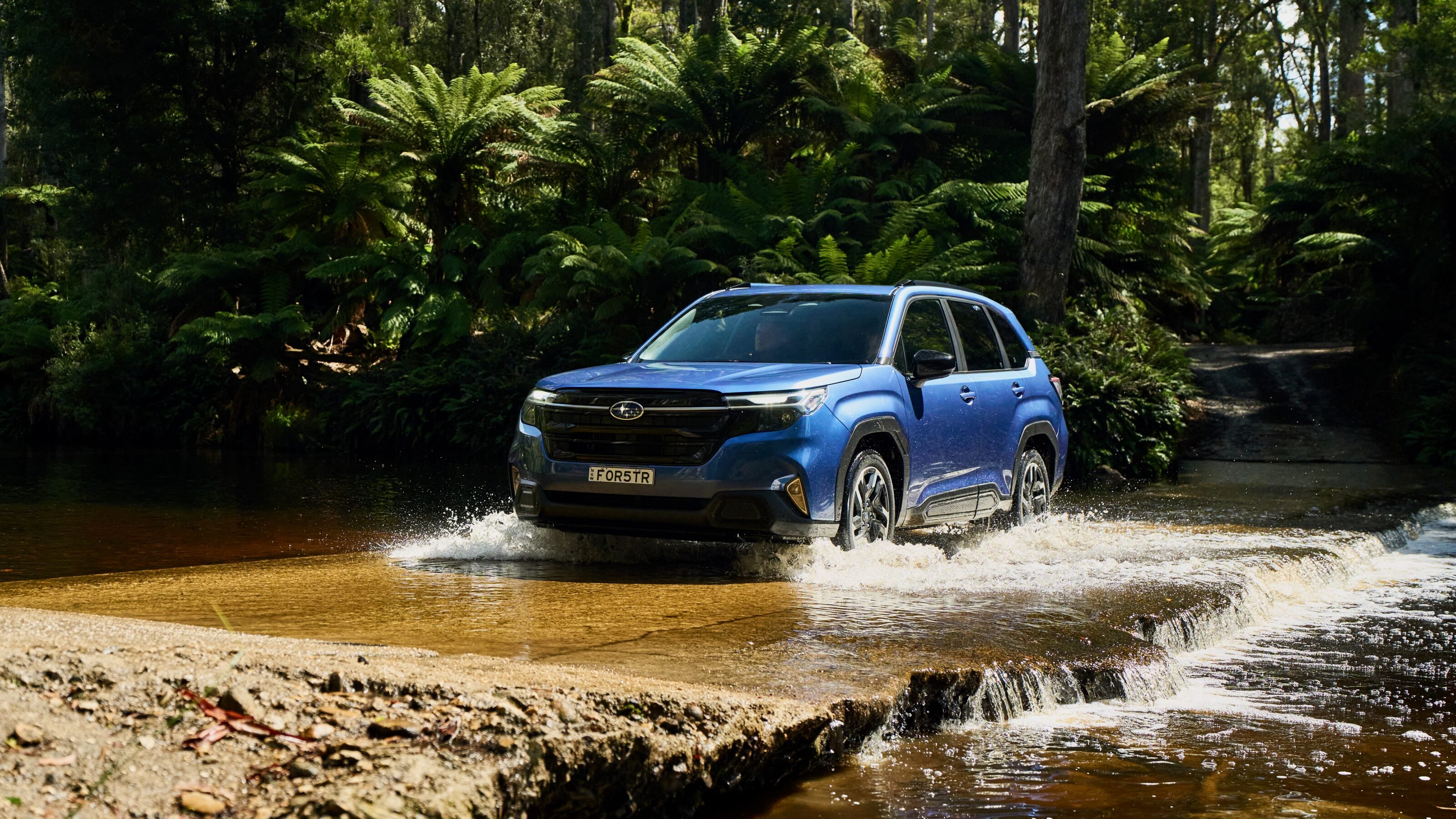Imagine walking into a showroom in five years and the equivalent electric vehicle is cheaper than the 1.6-litre petrol banger. Sounds absurd by current standards, doesn’t it?
Well that’s what the near future looks like, according to Nissan.
Speaking at the launch of the second-generation Nissan Leaf electric car in Australia this week, Nic Thomas, global director of electric vehicles at Nissan, made his – and apparently most of the industry’s – bullish views on electric vehicle affordability clear.
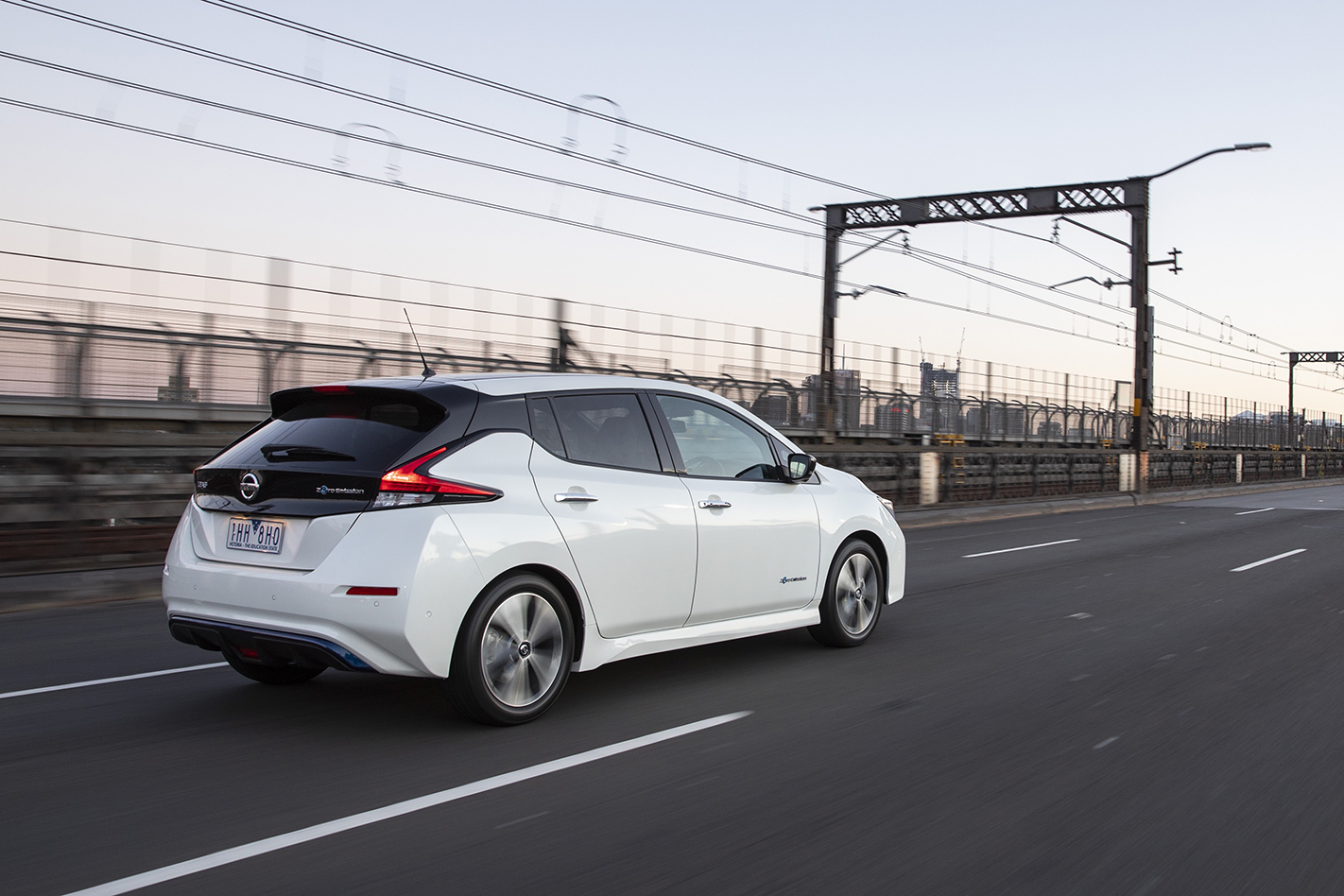
“This study was done by Morgan Stanley but I can assure you we have our own internal ones [at Nissan] that are very similar,” he said, referring to a chart in the background showing the price of EVs dropping below that of petrol and diesel-engined vehicles in just five years.
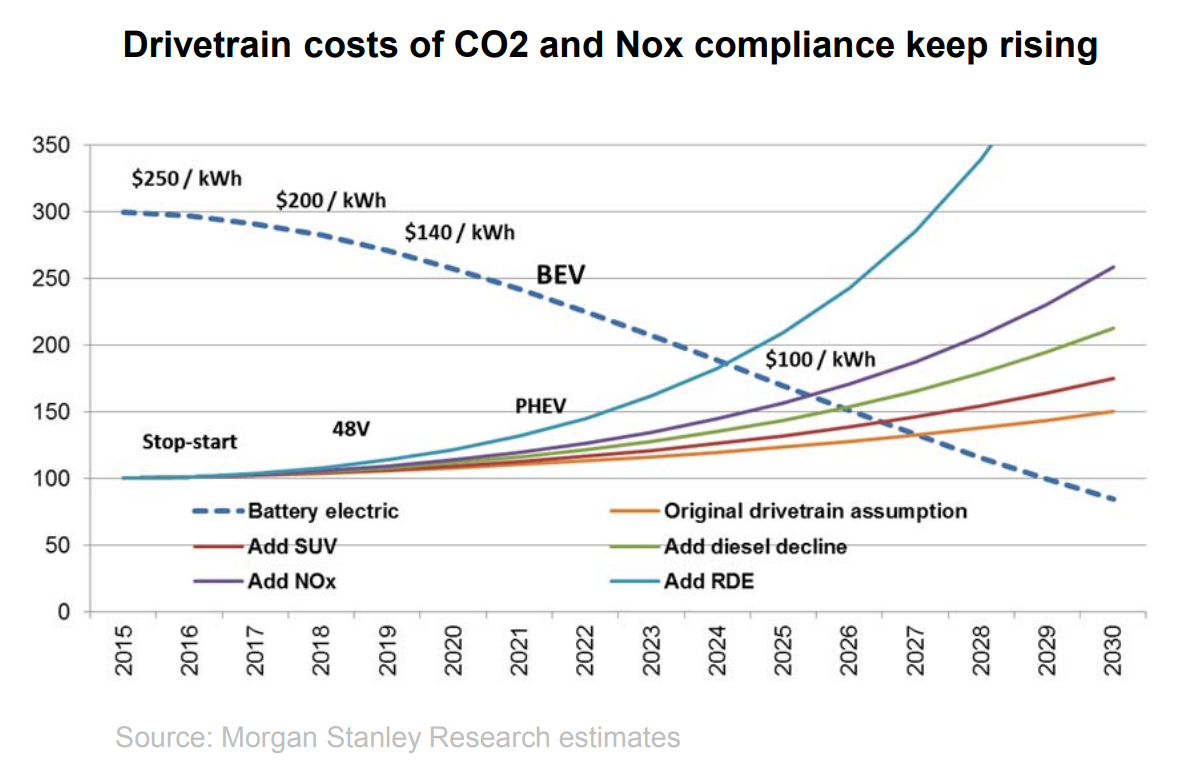
Retail, the top-spec Kona Highlander with a 1.6-litre turbo petrol four and front-wheel drive asks $35,500; the top-spec Kona Electric Highlander with its electric powertrain driving the front wheels cost $64,490.
It’s rather clear the costs of electrification are – for the time being at least – staggering.
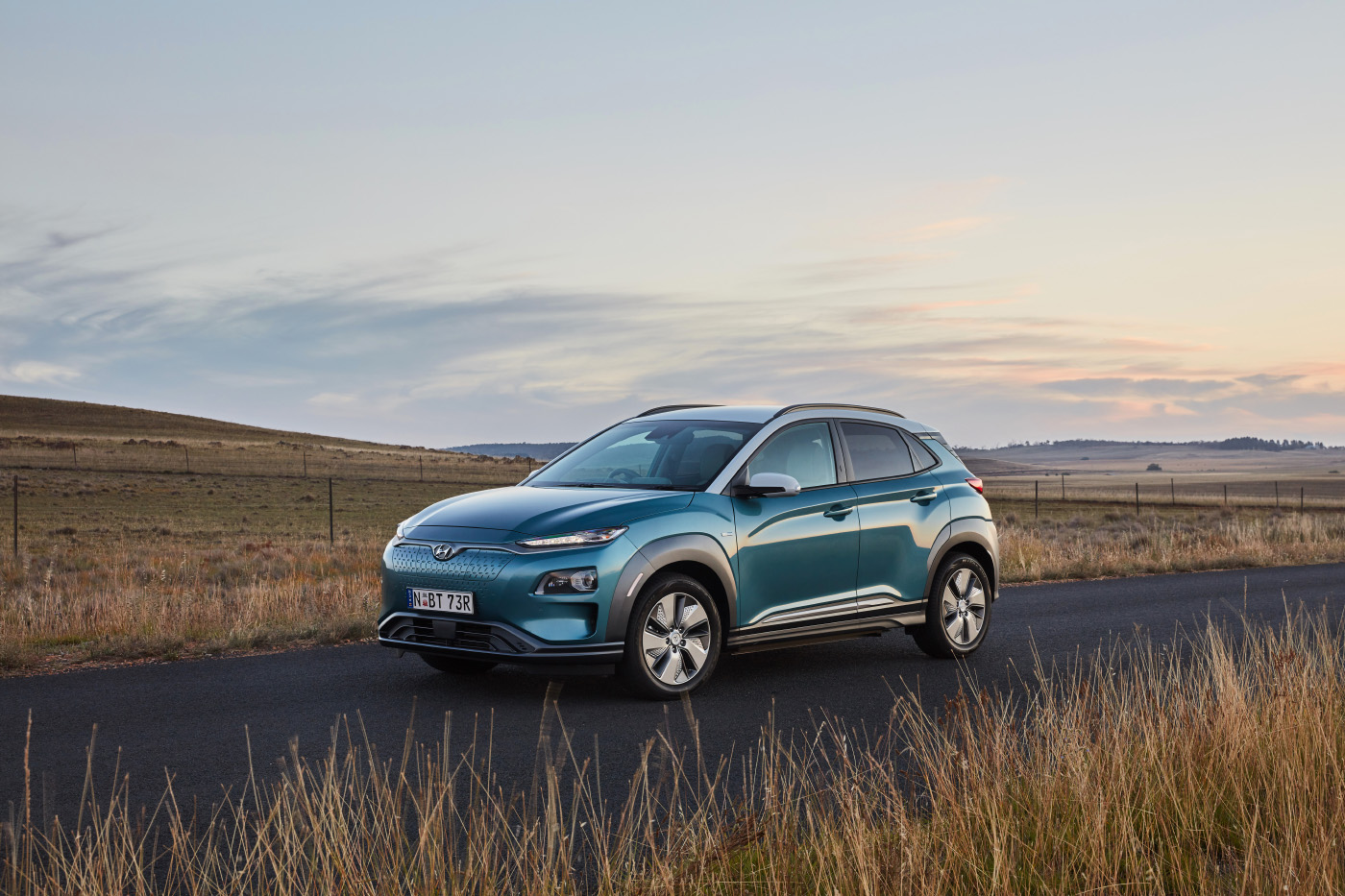
To Nissan’s credit, its new Leaf is priced at $49,990 and comes loaded with kit such as electrically adjustable and heated front seats, a heated steering wheel, and full leather-trimmed interior. But its battery is a measly 40kWh compared to the Kona’s 64kWh, which results in WLTP-rated driving range of 270km for the Leaf and 450km for the Kona.
But we needn’t have EV range and hip-pocket anxiety soon, according to Thomas. The need to lower emissions is having a hit on the bottom line for combustion engine development, and with the price of batteries falling, Nissan expects a crossover in price between the two by 2024.
“What you see here [on the graph] is the cost of traditional petrol and diesel powertrains and because of those [emissions] standards the cost of those things are going up very rapidly.
“So all those lines that start at the bottom at 100 and rise very rapidly are the costs to us as a car company of building traditional engines in the way that we always have and therefore, ultimately, we are going to have to pass on all those costs to the customer. Not just us but every other car company.”
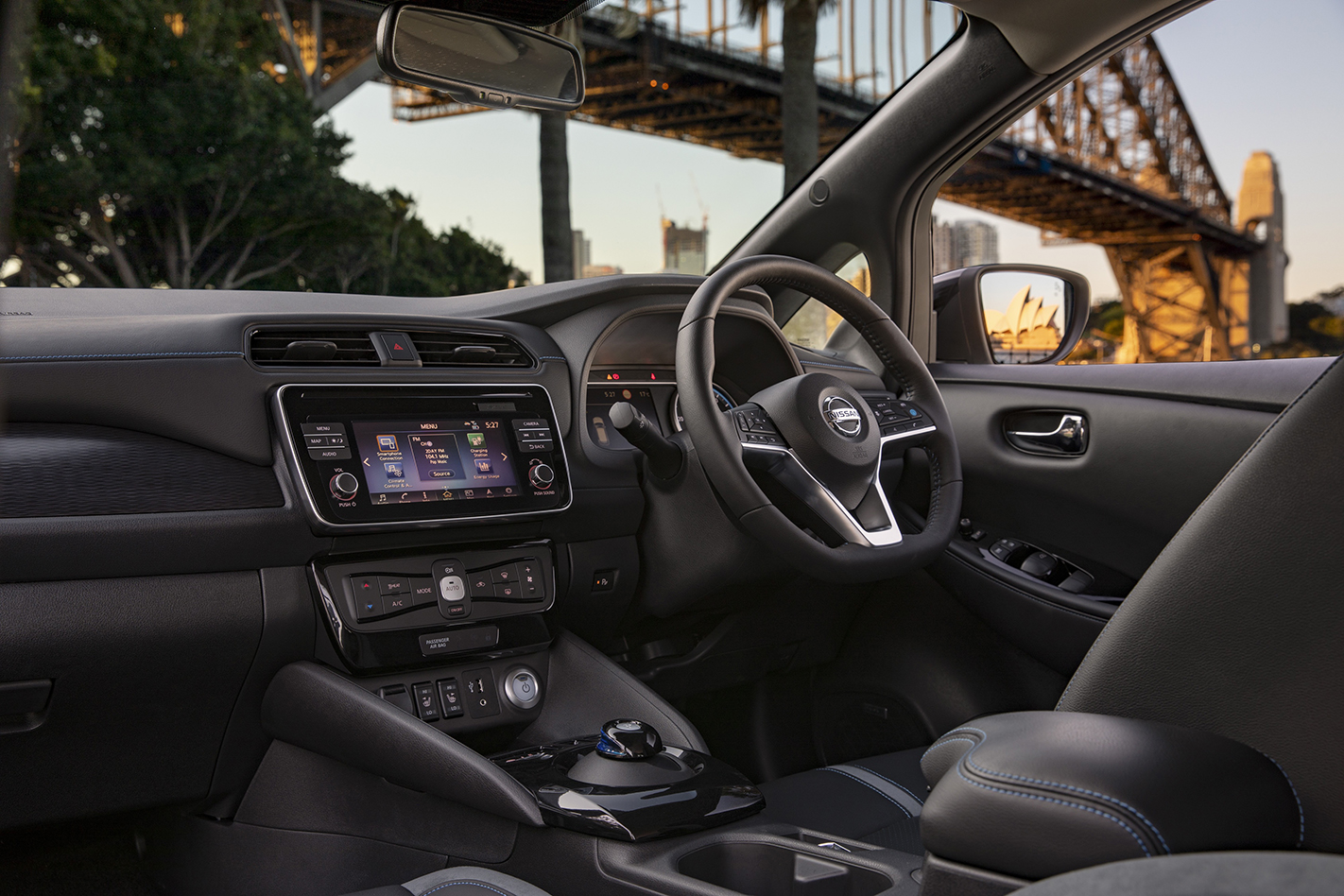
Thomas further explains that we’re already experiencing the effect of better electric production efficiencies, with the new Leaf more affordable than ever before.
“So those costs are falling very rapidly and it allows us to launch this car [Nissan Leaf] with a 40kWh battery at the same price as the original model with a 24kWh battery. It’s because the cost of those batteries are coming down.
“What we are going to see very soon is a crossover – and this is not just my forecast this is Morgan Stanley’s, and many other people are in similar positions, and everyone is forecasting that very soon there will be this crossover where a battery car is going to cost less than a petrol or diesel one. So that’s a good argument for a customer why they should buy one.”

